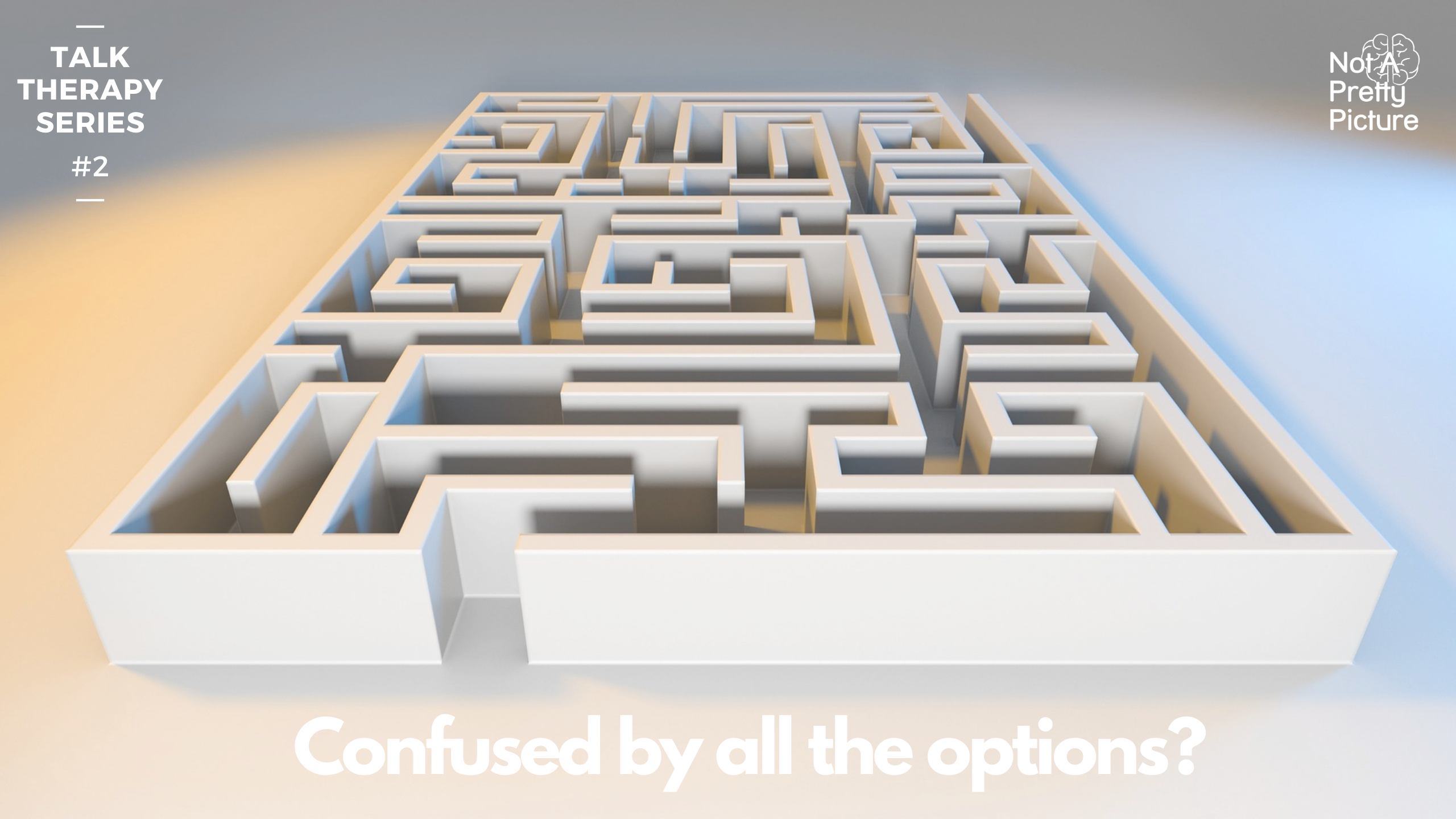So, you’ve considered whether you should explore therapy and decided to give it a try. Where do you start?
For me, I wasn’t very familiar with the differences between counsellors, therapists, psychologists, is there a difference in the 1st place? Do they have to have certain qualifications? Should I go for subsidised options or do I need to go for someone with a Ph.D and pay lots more etc.
I didn’t really know where to start. So I asked friends who had been to therapy or who were counsellors themselves.
The most important piece of advice that was given was that it didn’t quite matter if they had a doctoral degree or masters, what matters most is … the vibe.
Between you and the therapist. They must get you, and you should never feel judged or uncomfortable when you walk out of your session.
In the end, I followed the advice of a good friend of mine, who had seen different therapists over the past few years. Because she was having problems with her marriage, she had started with marriage counselling but her issues stemmed from much deeper within.
Suffice to say, she wasn’t getting much out of the marriage counsellor, and her friend recommended a psychologist in private practice.
She saved my life.
Was how my friend described the psychologist. So off I went to see her psychologist.
As it turned out, the fit between her and I, well, from my point of view at least, was not ideal. So it was a blessing in disguise that because she was due to give birth in a couple of months’ time, she had already told me that she would have to refer me to her colleague after the 1st couple of sessions.
Which was great, because the second psychologist seemed to intuitively get me, her tone and her mannerisms were just what I needed.
Back to the terms, counsellor, therapist, psychologist and psychiatrist. What is the difference between them all and who should you see?
Let’s start with the easier distinction, that is, between psychiatrists and psychologists. Psychiatrists are medical doctors, they attend medical school and they can prescribe medication and manage mental illnesses from a perspective of the physiological for example, chemical imbalances in the brain. Serious mental illnesses such as schizophrenia and bipolar disorder are diagnosed and treated by psychiatrists who can also employ elements of therapy and rehabilitation in the treatment.
Psychologists do not attend medical school, instead they go to graduate school and can have a doctorate degree in psychology, a Ph.D, but for most of them, they do not have the qualifications to prescribe medication. They focus more on helping clients using therapy and they are also trained to conduct psychological tests such as personality tests to further diagnose issues and treatments. Psychologists do not necessarily need to have a Ph.D, they could have a Master’s level degree too.
What about counsellors and therapists?
Now, defining counsellors and therapists is easier said than done because there are loose definitions floating around between therapy and counselling.
The psychologist can be called a counsellor or a therapist. But someone who doesn’t have the doctoral or master’s degree in psychology can also be a counsellor. They might have a graduate diploma instead.
They are generally not trained to run psychological tests and diagnostics and therefore, not able to provide psychotherapy.



Let me break it down from a layman’s perspective:
- Counsellors and Therapists: If you have day to day problems, something, for lack of a better word, tactical, something that happened to you that is causing you stress and issues, then you could talk to a counsellor, who would be able to advise you on what you can do. There are many options out there for counsellors. Marriage counselling, for one. Or grief counselling. Or stress-related issues counselling. Because some counsellors may use certain counselling modalities (perhaps practices from Cognitive Behaviour Therapy) in their counselling sessions, it is easy to see how the words therapist and counsellor might be used interchangeably.
- Social Workers: Some might throw in social workers into this mix, as they are also able to assist you with day-to-day issues that you might be facing, such as financial assistance schemes. And in that aspect, they might be considered to be counsellors too.
- Psychologists: However, if you have deep-seated issues, mental and emotional problems, I would suggest seeing a psychologist. Someone who can work with you on complex emotional issues using the diagnostic tools and concepts of psychotherapy. If necessary, the psychologist may refer you to a psychiatrist and they work in tandem to manage serious cases.
You can see how the actual definitions don’t really matter, as sometimes, the words are used interchangeably. You need to find someone who can meet your needs best.
About Fees and Vibes:
An informal ask around about fees among friends showed that seeing a clinical psychologist costs around $180-$250 / hour. It can be less, it can be more but this is around the range, it would seem. There are options you can explore in your community and other organisations and religious centres that may provide services at subsidised rates.
In Singapore you can check with the Singapore Psychological Society (Tel: 6735-2018) to verify that the person you are considering is a clinical psychologist registered with the Singapore Register of Psychologists.
The best way is to get a referral from a trusted friend or relative. Otherwise, you can call prospective therapists and ask to speak with them directly to enquire about their qualifications, training, approach to psychotherapy and so on. That will be a good 1st filter if you do not feel a good vibe from the call.
And remember, if after a few sessions, you do not feel comfortable with your therapist, move on to someone else. There is nothing wrong with that and you might have still learned a thing or two from your sessions. Of course, you would still have to go through the initial intake and assessments with a new person and it can be tiring or frustrating, but it is better to do it sooner rather than later.
Questions you can ask yourself:
- Do I feel that my therapist really cares for me?
- Do I feel understood by them?
- Do I feel that I can say anything and they won’t judge me? That they accept me as I am?
If it’s a YES to all, then congratulations, you’ve found the right person to help you.
I hope this article has been helpful to you, and good luck on your journey to better mental health!






4 thoughts on “Confused by all the different options? How to find the right therapist for you.”